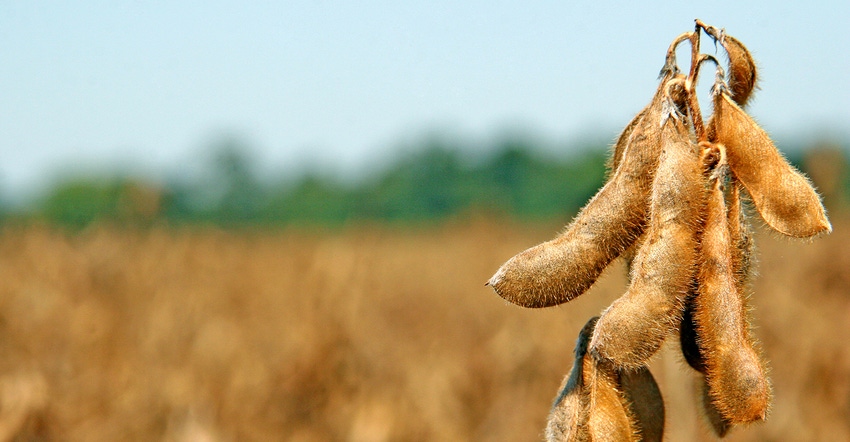
by Isis Almeida
The prospect of China quickly resuming purchases of American soybeans has fueled a rally in Chicago futures. But leading U.S. grain traders and lenders are skeptical.
While a 90-day truce between the world’s two largest economies is seen as a good start, the wider trade dispute goes well beyond the humble bean. Sorting out issues including intellectual property rights and fair-trade practices may take longer to achieve, said William Secor, an economist at CoBank, a $125 billion lender to the agriculture industry.
Even if the truce enticed Chinese buyers back to the market today, the 25 percent retaliatory tariff is still in place, making U.S. supplies less attractive. Also, the best time to sell American beans to China has passed as South American harvests approach, according to Cargill Inc., one of the world’s top four agricultural commodity traders.
"I don’t see how 90 days really can resolve a lot of those long-term structural changes that they need to make," Secor told the Country Elevator Conference in St. Louis this week. "My biggest concern going forward is that at the end of the 90 days, we don’t have anything different."
Soybeans rallied more than 3 percent Monday and held gains in the following two days as the trade talks fueled optimism that exports would pick up after all but grinding to a halt. U.S. Agriculture Secretary Sonny Perdue said he expected China to resume purchases around the new year and Chinese officials were told to take the necessary steps to restart. Still, futures fell as much as 0.8 percent Thursday on growing doubts that purchases were imminent.
Traders are skeptical. China usually buys soybeans about three months ahead and by then South American harvests will have started, according to Dave Baudler, managing director of North America grain at Cargill. Higher prices in Brazil will mean a "massive" expansion in plantings there, Bank of America Merrill Lynch analysts said in a report.
"The markets are up maybe because it didn’t get worse," Baudler said in an interview in St. Louis on Monday. "What I would say is we are hopeful. We don’t have a history of them doing things that are uneconomical and even when you had the government discussion, you actually have to have a physical buyer talk to a physical seller to get the actual trade done."
With details about the agreement reached between Donald Trump and Xi Jinping still scarce, the reaction has been somewhat contained, Eric Wilkey, president of Arizona Grain and chairman of the National Grain and Feed Association, said in an interview. It will be hard for the market to see "material business" being done in just 90 days, he said.
Soybean futures have fallen more than 15 percent from this year’s high as the trade war left record U.S. harvest lying in silos, ground piles and even bags. Speculators that had been betting on higher prices turned bearish in June in the lead up to the implementation of tariffs and have been holding their short positions since then.
“The money mangers that were short are saying: ‘Show me the business can really be done before I can worry about getting long the market too’," Wilkey said.
While there’s still a lot of uncertainty, the change in rhetoric in which the Chinese now say they want to buy American product is a positive sign, Cargill’s Baudler said.
"It needs to get fixed now whether that’s for some short-term sales, which was alluded to -- and I don’t know what it means yet -- or if it is for the next crop year," he said. "The sooner we have uncertainty out of the market for farmers, the sooner we will have a plan for next year, because we still have to plant in spring."
To contact the reporter on this story: Isis Almeida in Chicago at [email protected].
To contact the editors responsible for this story: Tina Davis at [email protected]; James Attwood, Millie Munshi
© 2018 Bloomberg L.P
About the Author(s)
You May Also Like




